Sadr’s movement copes with declining influence
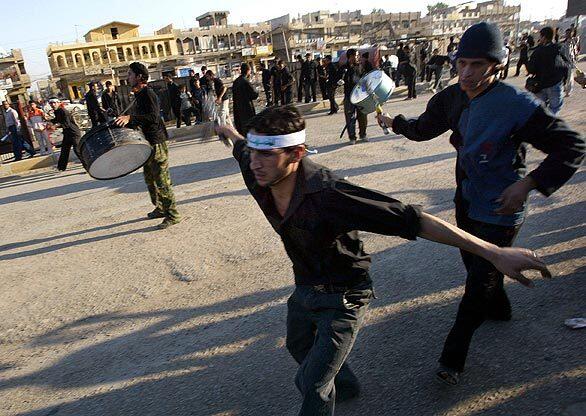
In Baghdad’s Sadr City, supporters of Muqtada Sadr march and strike themselves with metal chains as a sign of mourning in a memorial rally to honor the Shiite Muslim cleric’s father, Mohammed Sadeq Sadr, who was killed in 1999. The cleric’s movement has seen its influence wane as its Shiite rivals benefit from being in government and their ties to the U.S. (Ali Al-Saadi / AFP/Getty Images)
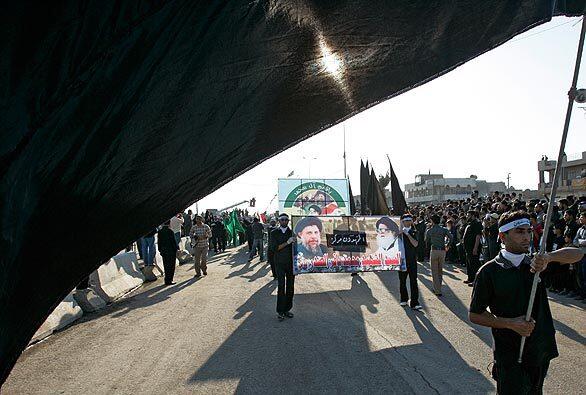
Sadr supporters hold a banner with images of Muqtada Sadr’s father, Grand Ayatollah Mohammed Sadiq al-Sadr, right, and his uncle, Mohammed Baqir al Sadr, during a memorial rally. At the height of the civil war, Muqtada Sadr’s Mahdi Army militia was one of Iraq’s most powerful groups; the U.S. military credits Sadrs decision more than a year ago to call a cease-fire as one of the chief reasons for the sharp drop in violence in Iraq. (Karim Kadim / Associated Press)
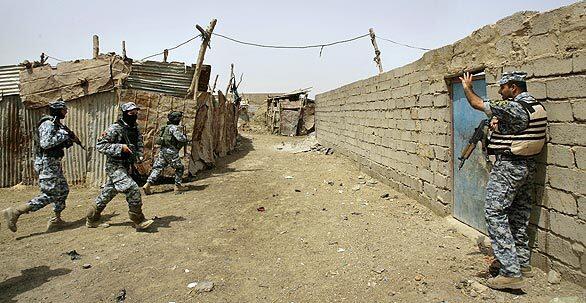
Iraqi police prepare to raid a building in a joint operation with the U.S. military in search of wanted members of the Mahdi Army militia, in the Fudailya area next to Sadr City. A crackdown on the militia in Basra and Baghdad this year has left the group weakened. (Khalid Mohammed / Associated Press)
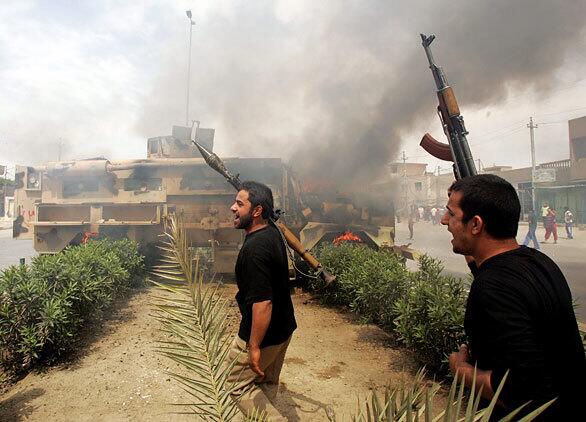
Sadr militiamen celebrate after attacking an Iraqi army vehicle during clashes in April in Sadr City. The militia resisted an army crackdown leading to violence and much bloodshed in the Sadr stronghold that angered civilians. The cleric ordered his fighters to stand down and has since announced plans to regroup most members into a socio-religious organization. (Wathiq Khuzaie / Getty Images)
Advertisement
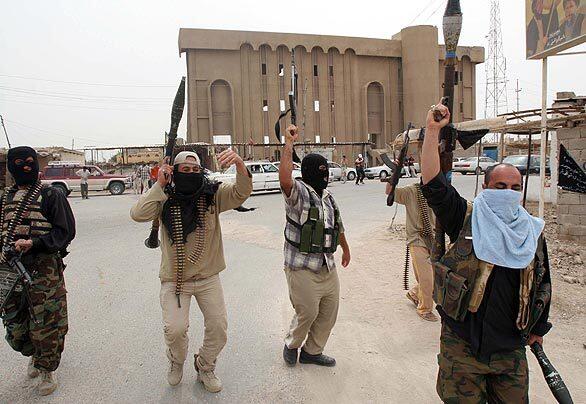
Mahdi Army militiamen carry rocket-propelled grenades in Basra, in southern Iraq in March. The group accused the Iraqi government of cracking down on them in order to improve the electoral prospects of Shiite rivals allied with the government. (Khaldoon Zubeir / Getty Images)
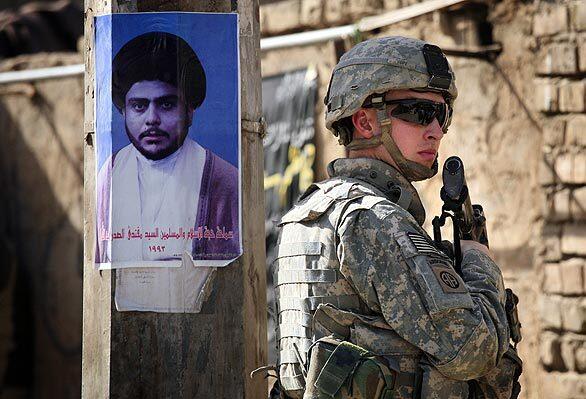
A U.S. soldier stands guard next to a poster of Sadr in March 2007, in the Hurriya neighborhood of Baghdad, a Sadr stronghold. (Maya Alleruzzo / Associated Press)







